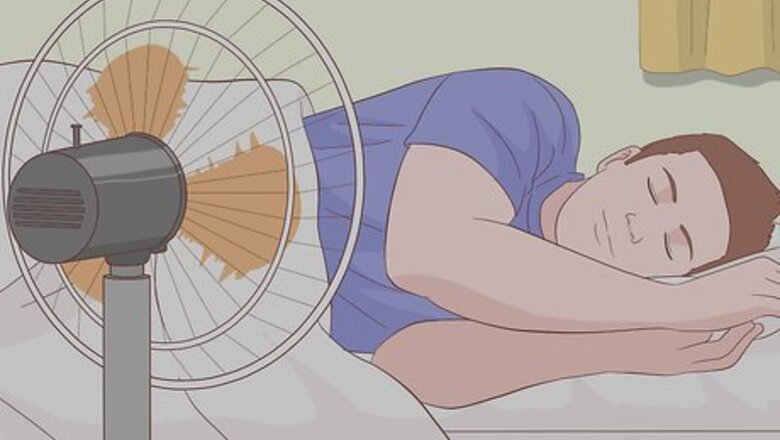
views
Treating Yourself during an Episode
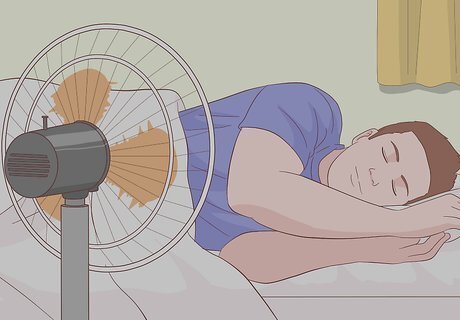
Lay down in a cool, dark room. CVS symptoms are similar to migraines, so staying cool and avoiding bright lights can help you feel better. If the room is too warm, try pointing a fan at yourself to cool down. If you’re continuously vomiting, then keep a bucket next to yourself so you don’t have to keep getting up.

Open a window to get more fresh air. Stale air can make nausea worse. Try to get some fresh air into the room and see if that helps you. If you feel up to it, you can also sit outside or take a short walk.
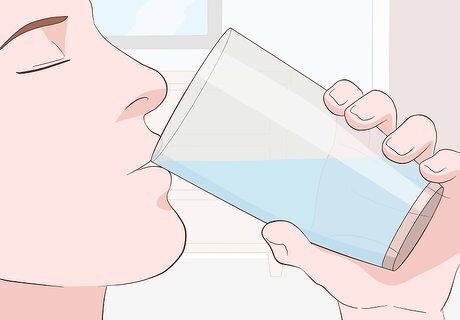
Drink plenty of water to prevent dehydration. If you don’t replace all of your lost fluids then you risk dehydration. Try to drink a few glasses of cool water throughout the day, especially after you vomit. Drink slowly to avoid triggering more vomiting. If you can’t keep any liquids down, try sucking on an ice cube instead. This way, you’ll swallow smaller amounts of water slowly, which could avoid more vomiting.
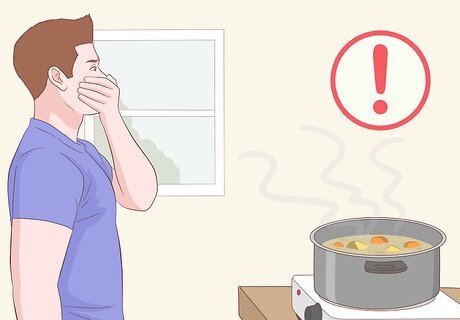
Avoid pungent or strong smells. When you’re feeling nauseous, strong smells can make you vomit. Try to stay away from the kitchen, especially if someone is cooking.

Follow a liquid diet if you still feel nauseous after the vomiting passes. In general, you can go back to eating solid food as soon as you feel better. However, if you’re still feeling nauseous, then eat broths, soup, Jell-O, and puddings until you feel up to eating solid foods again.
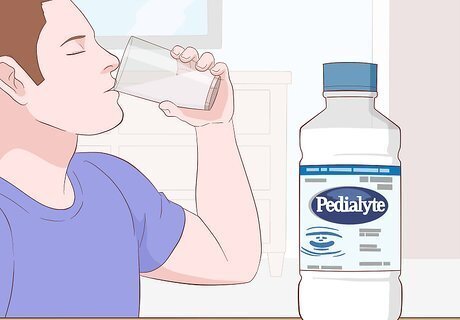
Replace lost nutrients with an electrolyte drink after the vomiting stops. An electrolyte solution like Pedialyte is a good option to prevent dehydration and replace the nutrients you lost while vomiting. It’s best to wait until you’re done vomiting to take electrolyte drinks. If you vomit again afterwards, you’ll lose all the electrolytes.
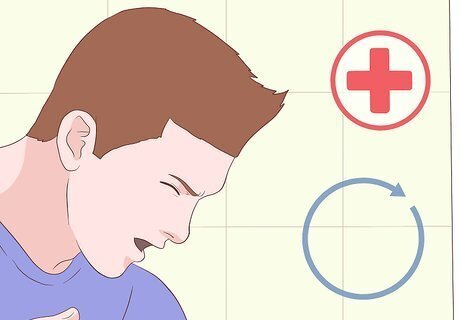
Go to the doctor if the vomiting doesn’t stop or you’re dehydrated. If the vomiting continues for more than a few hours, then you’re at a significant risk for dehydration. Contact your doctor if you can’t stop vomiting or experience dehydration symptoms. They may tell you to go to the emergency room for an IV fluid treatment. Dehydration symptoms include extreme thirst, dark or infrequent urination, confusion, dizziness, fatigue, and disorientation.
Recommended Preventative Measures
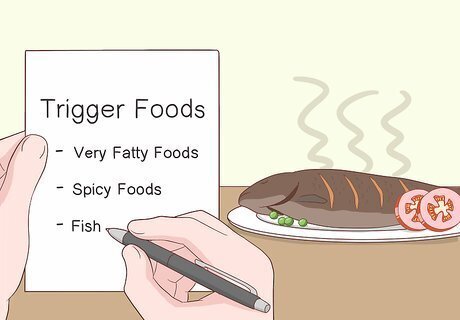
Identify and avoid foods that trigger your symptoms. Many people with CVS have trigger foods that cause vomiting episodes. These triggers are unique to each person, so monitor your symptoms and avoid the foods that seem to make them worse. Keep a diary where you write down each time you vomit, as well anything you ate, drank, or did just before an episode. That can help make it easier to identify your triggers.
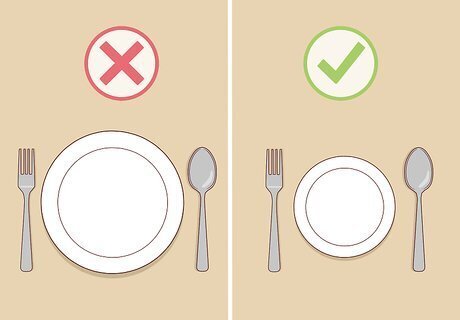
Eat smaller meals to avoid feeling too full. Feeling full can also trigger vomiting. Try having a few smaller meals throughout the day instead of 3 large ones.
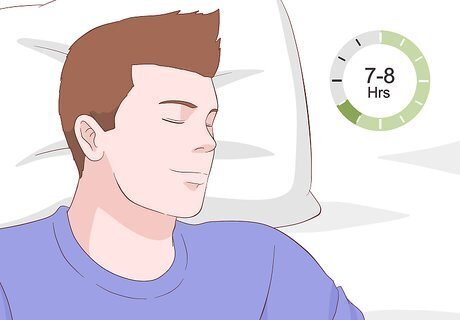
Get 7-8 hours of sleep every night to prevent fatigue. Lack of sleep seems to aggravate CVS symptoms, so do your best to get a full sleep every night. If you have problems with insomnia, try winding down with relaxing activities like reading an hour before bed.
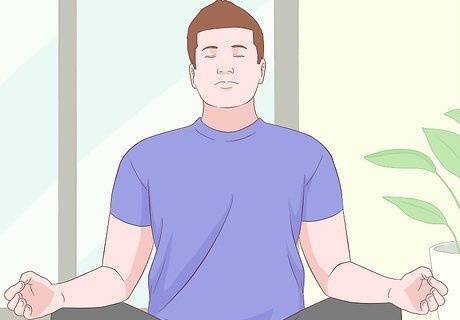
Reduce your stress to prevent nausea episodes. Stress also aggravates CVS. Do your best to control and reduce your stress to avoid vomiting episodes. Relaxation exercises like meditation, yoga, and deep breathing can all improve your stress symptoms.
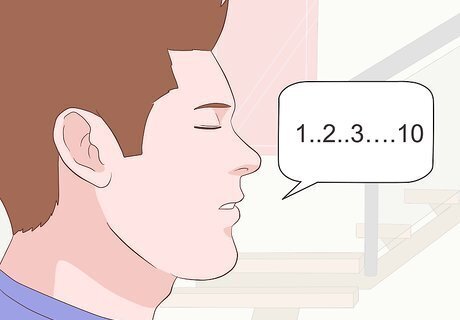
Learn calming techniques if excitement makes you vomit. For some people, getting overly excited, even in a good way, can cause vomiting. If you feel your excitement rising, try closing your eyes and counting to 10 to keep yourself from vomiting.

Follow the treatment regimen for any underlying health issues you have. A number of health issues, especially GI conditions like heartburn, can trigger vomiting episodes. Follow your doctor’s orders for managing any other health conditions you have to avoid triggering your symptoms. Allergies can also trigger CVS symptoms. Take any medications or get any shots that you need to keep your allergies under control.
Supplements and Treatments That Might Help
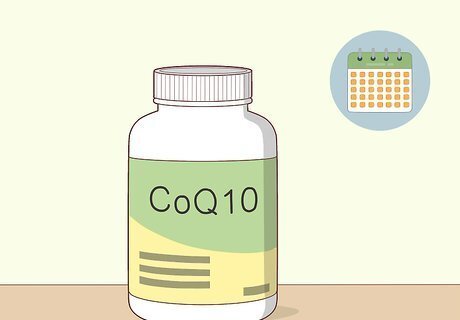
Take Co-Q10 supplements daily. One study found that daily Co-Q10 doses helped people suffering from CVS, so the supplement may improve your symptoms as well.
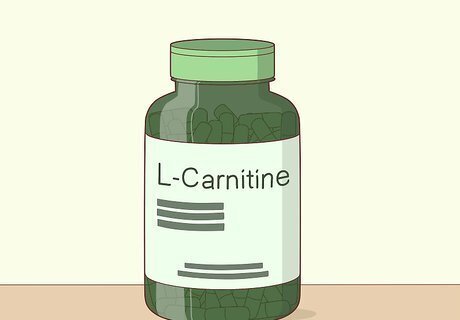
Try L-carnitine to help your body process fat. Since fatty foods can trigger CVS symptoms, L-carnitine might help because it improves your body’s ability to digest and store fat.
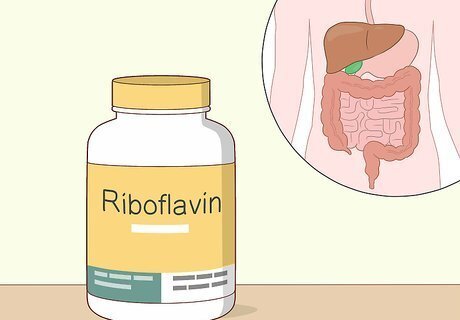
Use riboflavin to improve your cell function. Riboflavin, or vitamin B2, could improve your body’s digestive function. This might prevent vomiting episodes from CVS.



















Comments
0 comment